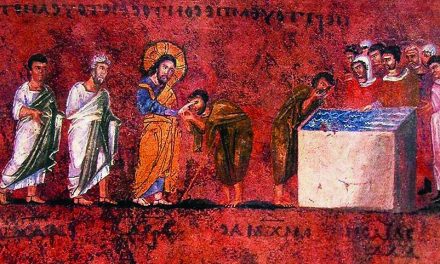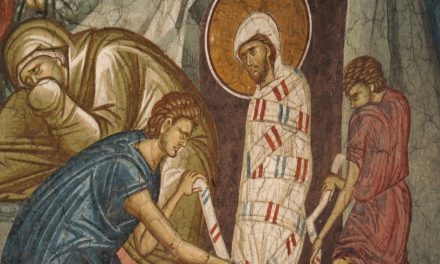Readings for the Twenty-first Sunday in Ordinary Time
The psalm response for this Sunday provides us with two options: “Go out to all the world and tell the good news,” (from Mark 16:15) or, simply, “Alleluia!” Either way, we hear the positive connotation, the sense that this Sunday is about rejoicing. Yet when we look at the other readings, we might be perplexed at why such a psalm response was chosen to bridge these Scripture passages.
In particular, today’s gospel passage from Luke and the second reading from the Letter to the Hebrews seem to offer a challenge. In the gospel we hear Jesus addressing the question of who will be saved. His answer is not “everyone,” as we sometimes hear enthusiastically argued. Rather, Jesus responds with talk of a narrow gate, “depart from me, all you evildoers,” and the sure sign of calamity: “wailing and grinding of teeth” of those who are cast out from the kingdom of God (Lk. 13:17-18).
In the immediate context of Luke Chapter 13, Jesus is discussing the Kingdom of God and calling for repentance. His audience seems attentive, but yet unwilling to commit. Perhaps we can identify with such a crowd, since there are many times that we know we need to embrace sacrifices or make profound changes, yet we choose to delay such decisions, deferring them indefinitely. Many Jews had been waiting for the Messiah and eagerly anticipating this moment, but the waiting had become familiar and comfortable. Anticipating the Messiah is easier than confronting one’s life in light of Jesus. And part of the message is that the Jewish Messiah has actually come for all people, “nations of every language” as we hear in that first reading from Isaiah or “people…from the west and the east and from the north and the south,” as we hear in Luke.
This alone should be good news for all of us, as we see how our Gentile salvation has come through this Jewish Messiah. Jesus does not say everyone is saved, but yet we see a global claim: Jesus is for all people. However, it still can be a hard message for us reading this so many years later, as we may prefer to ignore the urgency of being a disciple because of the demands it makes on our life.
Thus the second reading from the Letter to the Hebrews reminds us that our trials are discipline from the Lord, and while discipline immediately causes pain, it later is a source of joy for those who have been trained. Thus, the readers are encouraged to make the needed effort in facing these trials. While our natural reaction is to try to avoid pain, suffering, and trials, we see here a positive perspective.
Sometimes we need to hear hard things, to be reminded of the urgency of our situation so we can spring into action. Jesus is for all people, and he calls all people, wanting us all at the banquet of the Kingdom of God. But this is a call, to which we must respond with our free will, using our effort to embrace the difficulties that come with following Jesus. It can seem an impossible task, but in fact, the situation is gamed in our favor. We are uniquely loved by God; we have the community of the Church; we are given Jesus’s body and blood in the Eucharist to strengthen us on our way. The victory is already won in the life, death, and resurrection of Jesus. Now it is up to us to choose to share in that victory by together embracing our crosses and not delaying.




